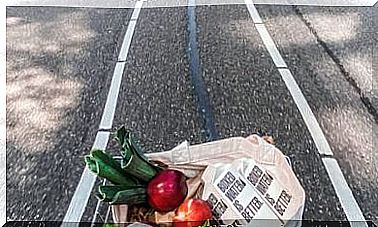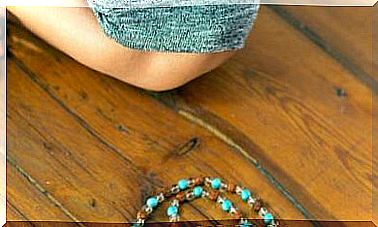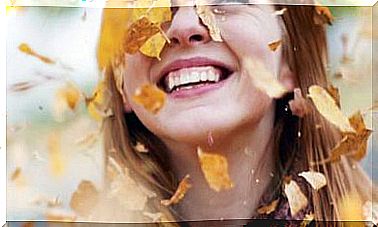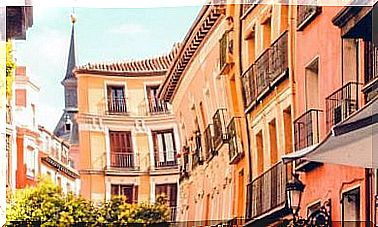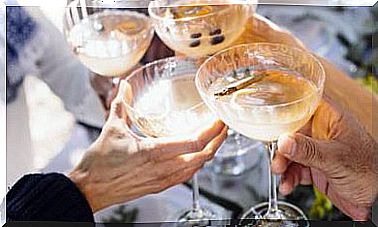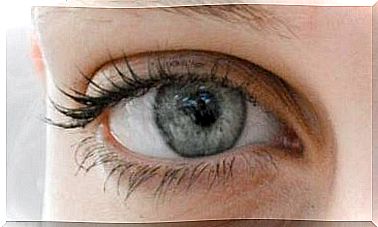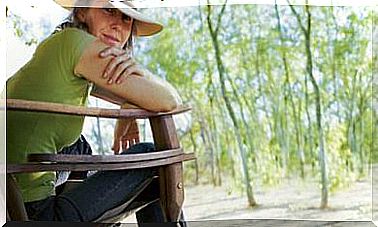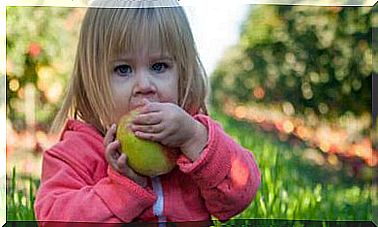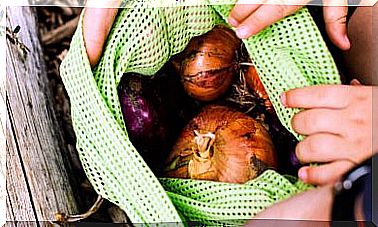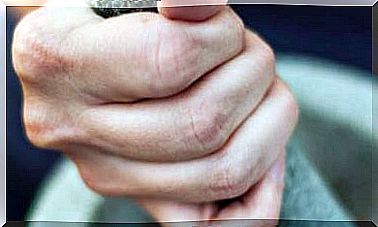“A Person Who Is Well Does Not Think About Himself All The Time”
Christophe André’s books quickly become a best-seller in France. Now he has published in our country three works in which he emphasizes the importance of meditating regularly, of conquering inner freedom and of being aware of our interdependence.
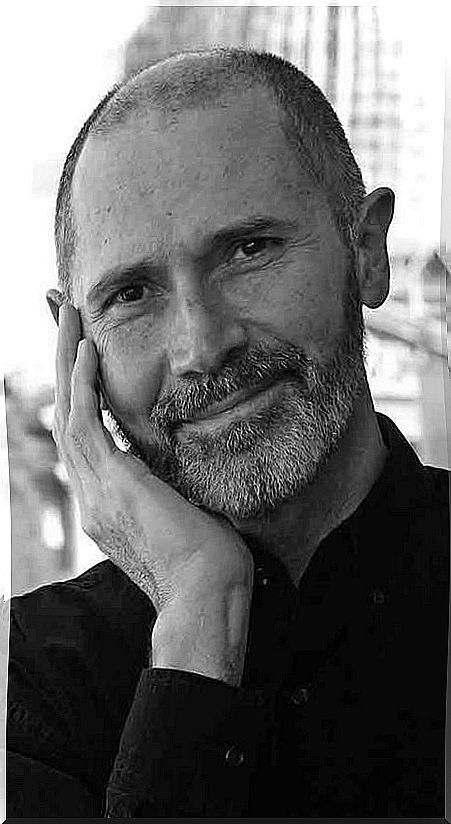
The psychiatrist and writer Christophe André is one of the most widely read self-help authors in France and his work as a popularizer of psychiatry and psychology is also well known in Spain, where he has recently published works such as “Tiempo de meditar” (Ed. Kairós ) and “In Praise of Interdependency” (Ed. Kairós) the latter written with the psychologist Rébecca Shankland.
In his latest works published in Spain, the author reflects on the importance of meditating regularly, conquering inner freedom and being aware of our interdependence, something that the current context of health emergency has undoubtedly highlighted.
“The pandemic is proof of our interdependence on a global scale, a proof that we certainly could have dispensed with as well as the sadness we feel at being deprived of our usual social life. In the end they have taken away the social relationships that nurture us and we discovered that they are vital for us ”, Christophe André tells us.
“We realize that staying locked up at home, even when we are comfortable and comfortable, being able to telecommute and with distractions, we do not have a complete and fulfilling life. It is an overdose of being closed in on ourselves. We need others and others of us ”, André explains that as a psychiatrist he has dedicated his life to helping people understand themselves better, although he confesses that he rather dreamed of being an engineer.
“When I was in high school I was good at math and physics and I wanted to be an engineer, however I read Freud during a philosophy course and everything changed: I discovered the psychology of which I was ignorant of everything – since at home we did not talk about it – and I decided to be a psychiatrist like Freud. Today I realize that it was something I personally needed. I come from a family in which there was a lot of psychological suffering and I was an extremely anxious person myself. So lucky I’m not an engineer, I couldn’t have healed myself! “
– And how do you experience being considered one of the best self-help authors in France?
– The fact of being famous gives the impression to readers that I am someone very competent professionally and perfect on a personal level. Obviously everything is much more complicated. It just makes me happy to see that my books are useful to so many people. Every thank you letter I receive goes straight to my heart. Each person who comes to have a book dedicated to him and tells me how my advice has helped him gives me immense pleasure. But we talked about success with my friend Matthieu Ricard and we know that all this happens quickly, that we will be forgotten in a few years and that we should not give it too much importance.
“My job is to write books that explain, that help and not monitor sales or verify that I am recognized on the street.”
–One of its pioneering tasks was to propose the practice of mindfulness in the Hospital-University Service of the Hospital Santa Ana de París. What advantages has this practice had within a hospital setting?
Yes, we were pioneers in France. We have been doing it since 2004, a time when meditation still inspired mistrust or condescension. By practicing as a doctor in a prestigious university service – it was in this hospital that the first neuroleptics were discovered and tested in the 1950s – proposing meditation to our patients was taken very seriously by our colleagues.
They thought: “If they do it, they who normally work on genetics and neuropharmacology, meditation would be too.” This initiative has greatly helped the spread of mindfulness meditation in our country.
– What are the benefits of meditation as a complement to psychology?
–Meditation is not a medicine or a psychotherapy, it is a lifestyle. It is a daily training of the mind that helps us to have a calming and lucid look at ourselves and the world.
When patients are unwell, when they are in the depths of depression or are victims of panic, we do not propose to meditate, but to take medication or follow therapy. It is when they begin to feel better that we teach them to meditate: it is the means of gaining strength to avoid the risk of relapse. Meditation should become a habit such as walking, regularly contacting nature or following a diet that is especially rich in vegetables and therefore anti-inflammatory.
– And on a personal level, could you explain to me what the habit of meditation has given you?
–Meditation has clearly helped me reduce my stress level. I have an anxious tendency linked to my perfectionism and my desire to do everything right, to be perfect and never to disappoint, neither as a father, nor as a husband, nor as a doctor, nor as an author … Meditate by letting these stressful thoughts dissolve in my breath and Mandates to be perfect calm me and allow me to reconsider what my priorities are: respond less to the pseudo-urgencies imposed by life and dedicate myself more to what is important to me and to others.
– I wonder if, despite the great dissemination that has been made of meditation, we know how to meditate. You who have written the book “Time to meditate” (Ed. Kairós) Could you guide us?
–To discover meditation, a good book accompanied by a CD or an application on the phone may be the solution. It allows us to see if we like it or if we go crazy … And there are people for whom meditation and what it entails – being immobile with your eyes closed and observing the experience one moment after another – does not go well at all. Then it is better that they dedicate themselves to the practice of tai chi or yoga, where the contemplative experience is worked through postures or slow movements.
But if the discovery has been positive and one wants to go deeper, it is advisable to join a meditation group of the MBSR type (Mindfulness-Based Stress Reduction). The weekly sessions of two and a half hours for eight weeks together with 10 or 12 people under the supervision of a qualified teacher with exercises to do at home gives a good base.
A little tip to discover the taste of meditation: every time you want to pick up your mobile, first take a moment to breathe calmly, to feel what the state of the body is, what are the thoughts that circulate through your mind, to observe around you, listening carefully to the sounds that surround you … This attentive reconnection with reality, with internal sensations and those coming from the outside world, is the essence of meditation.
–Sometimes acting psychiatry is questioned for abusing drugs. What do you think? Is it also a reflection of today’s society rather than looking for easy solutions?
Medicines are valuable when people are drowning in suffering. But later, except for exceptions or singular diseases such as schizophrenia or bipolarity, we should be able to replace them with a healthier life: less stress, more emotional ties, more walks in nature … Our society – and ourselves – seek happiness on false tracks: working to be able to buy, accumulate, throw away … We no longer have time to cook, so we buy processed foods, we don’t have time to fetch the children from school and we pay babysitters … We spend the time of our life working and shopping.
– So, what would you say are the evils of our time?
– Without a doubt selfishness and materialism. Selfishness: each one thinks for himself, we are pushed to be more and more efficient, more narcissistic and more focused on ourselves. Social networks are a great lie, a showcase where each person shows a false and embellished image of himself. Studies show it: the more we visit social networks, the more anxiety we suffer, the more dissatisfaction and the more unhappiness.
Only authentic social relationships nourish us, something that virtual ones do not. Neither competing helps us, but collaborating. And then there is materialism, which means putting possessions and social status above all else on the scale of values. Consume rather than savor. This is another great source of existential dissatisfaction and also a tool for destroying the planet …
Studies show that meditation makes us more sensitive to others, makes us more empathetic and altruistic, and this also makes us greener. By decentering ourselves, it allows us to discover the links of interdependence and our authentic needs.
–He has written a book with his friends the Buddhist monk Matthieu Ricard and the philosopher Alexandre Jollien a second book “Long live freedom!” (Ed. Harp). Is cultivating friendship one of the secrets of well-being?
– A great part of our daily pleasures comes from the relation with the others. When we are with our equals, we feel good. When we are in resentment, criticism, conflict, jealousy, resentment, we feel bad.
Our emotions always show us the way.
Social support – being able to count on others to help us, advise us, give us affection and esteem – is something very important to find well-being and enjoy good self-esteem. That is why selfish and narcissistic people, who count only on themselves, suffer from such high levels of stress. Matthieu and Alexandre give me a lot for their kindness and for their wisdom first, for their humor and creativity later; and for their friendship.
– Can we feel happy and free in a context of disease and so many limitations like the current one?
– It is not the ideal moment, it is true. But precisely because times are difficult and complicated we have to focus on savoring the small pleasures that remain and are within our reach. This is what happiness is for.
The French writer Claudel wrote: “Happiness is not the end, it is the means of life.” What I wanted to say is that without happiness, without the small pleasures that we regularly feel, we would not find the strength to face all the adversities that we encounter throughout life.
– Does inner freedom imply feeling good despite external circumstances?
-In these times of confinement, curfew, restriction of our freedoms of meeting and movement, inner freedom is welcome. It consists of not letting painful emotions take control of the mind. Every time we are anxious, sad or angry, it is important to understand why and then calm the painful emotion to focus on the good solutions, which are not necessarily the perfect and ideal solutions (that the pandemic ends), but those that depend on us and that They are in our power as what can I make it pleasant and enjoyable during these restrictions.
Meditation helps us to pacify our emotions without nullifying them and to understand where what Buddhists call “just action” is situated: what can I do here and now that represents the beginning of problem solving?
– What prevents us from leaving behind the ego, the self?
–There are two efforts to be made. First, not always be focused on oneself, our interests and our image. We know that when a human being is well he does not think about him constantly. Medicine defines health as “the silence of the organs.” Well, mental health is the silence of the ego. The ego is like the motor in the kitchen fridge: it must run without noise.
However, you have to take care of yourself and be compassionate with yourself, do not neglect yourself, do not mistreat yourself excessively or with fierce self-criticism after our failures. If I take care of myself correctly, I can easily forget and turn to what is truly interesting: others and the world. If my ego suffers, then it will be noisy and will take all my attention: suffering draws us back on ourselves while happiness opens us to the world.
– What advice would you give us to free ourselves from our inner hells? Maybe stop constantly chasing happiness?
Yes, the obsession with happiness is counterproductive. It is about living better, in full consciousness, being present in our actions, savoring the pleasant little moments, focusing on what makes sense for us. Give, share, do the best we can, cultivate our values, accept life, even if it is complicated at times, accept that life is complicated, difficult … But go through all this smiling, and happiness will come regularly to visit us.
